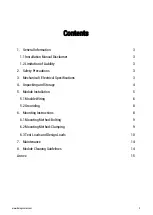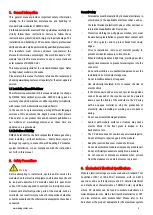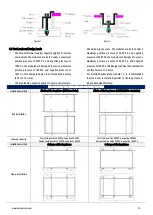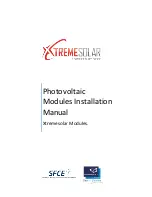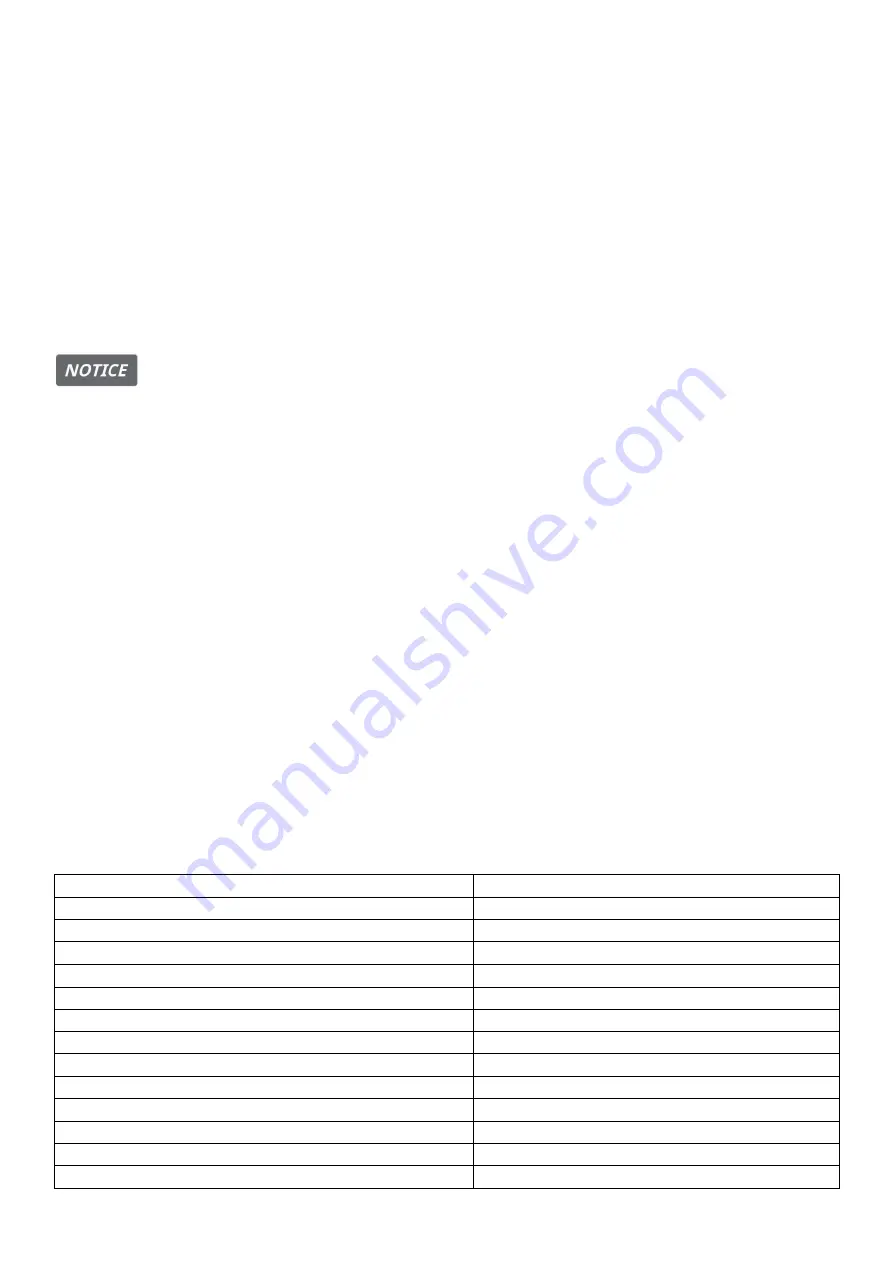
DMEGC Solar PV Modules Installation Manual
active components (such as inverter or combiner boxes)
before starting with the cleaning.
•
Wear suitable protection (clothes, insulated gloves, etc.).
•
Do not immerse the module, partially or totally, in water
or any other cleaning solution.
•
Rear side cleaning of the modules is not required. If
cleaning the rear of a module is desired, care should be
taken to ensure there is no damage caused to the
backsheet by simply clearing the contaminant by hand or
with a soft sponge.
Handing Notice
•
Use a proper cleaning solution and suitable cleaning
equipment.
•
Do not use abrasive or electric cleaners on the module.
•
Particular attention should be taken to avoid the module
backsheet or frame to come in contact with sharp objects,
as scratches may directly affect product safety.
•
Do not use abrasive cleaners, de-greasers or any
unauthorized chemical substance (e.g. oil, lubricant,
pesticide, etc.) on the module.
•
Do not use cleaning corrosive solutions containing
hydrofluoric acid, alkali, acetone, or industrial alcohol.
Only substances explicitly approved by DMEGC Solar are
allowed to be used for cleaning modules.
•
For cleaning methods using rotating brush, please
consult with DMEGC Solar's technical support before
using.
•
Dirt must never be scraped or rubbed away when dry, as
this will cause micro-scratches on the glass surface.
OPERATION PREPARATION
•
Noticeable dirt must be rubbed away by gentle cleaning
implement (soft cloth, sponge or brush with soft bristles).
•
Ensure that brushes or agitating tools are not abrasive to
glass, EPDM, silicone, aluminum, or steel.
•
Conduct the cleaning activities avoiding the hottest hours
of the day, in order to avoid thermal stress on the module.
CLEANING METHODS
Method A: Compressed Air
DMEGC Solar recommends cleaning the soft dirt (like dust)
on modules just with air pressure. This technique can be
applied as long as the method is efficient enough
considering the existing conditions.
Method B: Wet cleaning
•
If excessive soiling is present on the module surface, a
non-conductive brush, sponge, or other mild agitating
method may be used with caution.
•
Ensure that any brushes or agitating tools are
constructed with non-conductive materials to
minimize risk of electric shock and that they are not
abrasive to the glass or the aluminum frame.
•
If grease is present, an environmental-friendly cleaning
agent may be used with caution.
•
DMEGC Solar recommends the following to be used:
1. Water with low mineral content
2. Near neutral pH water
3. The maximum water pressure recommended is 4
MPa (40 bar)
Annex
Glass/Foil Modules
Double Glass Modules
DMXXXM10-54HSW/HBW/HBB
DMXXXM10-G/B54HSW/HBW/HBB/HBT/HST
DMXXXM10-60HSW/HBW/HBB
DMXXXM10-G/B66HSW/HBW/HBB/HBT/HST
DMXXXM10-66HSW/HBW/HBB
DMXXXM10-G/B72HSW/HBW/HBB/HBT/HST
DMXXXM10-72HSW/HBW/HBB
DMXXXM10-G/B78HSW/HBW/HBB/HBT/HST
DMXXXM10-78HSW/HBW
DMXXXM6-G/B60HSW//HBW/HBB/HBT/HST
DMXXXM6-60HSW/HBW/HBB
DMXXXM6-G/B72HSW/HBW/HBB/HBT/HST
DMXXXM6-72HSW/HBW/HBB
DMXXXG1-G/B60HSW/HBW/HBB/HBT/HST
DMXXXG1-60HSW/HBW/HBB
DMXXXG1-G/B72HSW/HBW/HBB/HBT/HST
DMXXXG1-72HSW/HBW/HBB
DMXXXG1-G/B60SW/BW/BB/BT/ST
DMXXXG1-60SW/BW/BB
DMXXXG1-G/B72SW/BW/BB/BT/ST
DMXXXG1-72SW/BW/BB
DMXXXM2-G/B60HSW/HBW/HBB/HBT/HST
DMXXXM2-60HSW/HBW/HBB
DMXXXM2-G/B72HSW/HBW/HBB/HBT/HST
DMXXXM2-72HSW/HBW/HBB
DMXXXM2-G/B60SW/BW/BB/BT


